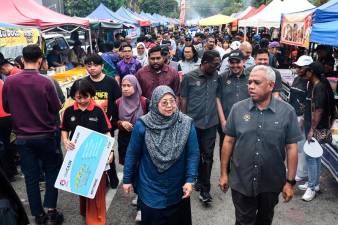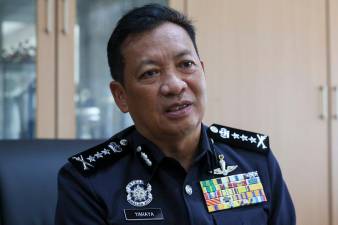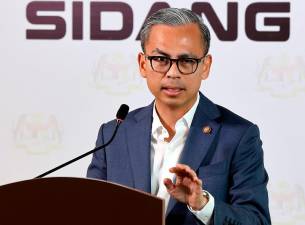
Diaz-Canel meeting with representatives of the LGBTIQ + community in Cuba. Photo: Estudios Revolución.
Respect for the human being and his dignity, for the ways chosen by each one — as long as they do not harm — to exist and be happy. Defend and do for a united Cuba, knowing that the union is only real if diversity is assumed; knowing that the exclusion, discrimination, stigmatization that we do in the face of what we do not resemble or do not understand, are practices that open abysses and in the end weaken us and move us away from the dreamed Island, of that space where fullness can be touched.
That state of mind remained in the air, those thoughts after this Friday, from the Palace of the Revolution, a meeting would have taken place between the First Secretary of the Central Committee of the Communist Party and President of the Republic, Miguel Díaz-Canel Bermúdez, and representatives of the community LGBTIQ + in Cuba.
To the interlocutors – of which most of one valued the dialogue as historical—, the dignitary thanked them, towards the end of the reflections, for their sincerity and for having shared themes that “move and are part of life stories. ”
“ One has been getting a load of em Ocional, of dissatisfactions of you that also squeeze the feelings; and one realizes the magnitude of all the work that lies ahead, regardless of all that has been tried to advance on these issues, “said Díaz-Canel Bermúdez during the exchange that was also chaired by Jorge Luis Broche Lorenzo, member of the Secretariat and head of the Department of Education, Sports and Science in the Central Committee of the Party; by the Minister of Public Health, José Angel Portal Miranda; and by Mariela Castro Espín, director of the National Center for Sex Education (Cenesex).
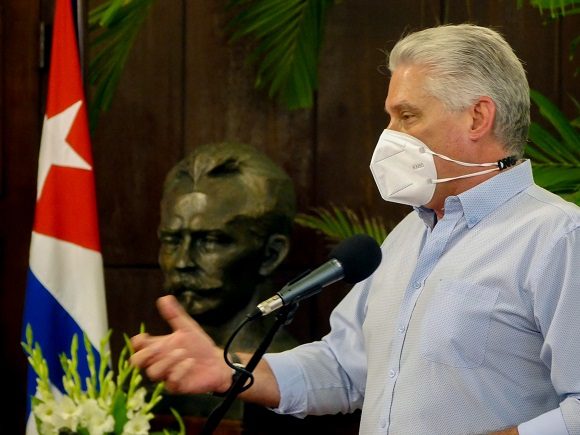
Cuban President meets with representatives of the LGBTIQ + community in Cuba. Photo: Estudios Revolución.
The Head of State spoke of working together, of achieving consensus, of “Build the proposals for the country we want”: a socialist country and “one that is getting better and better”. He told those who listened to him about other meetings that have already taken place from the Palace of the Revolution, which have allowed him to be aware of ideas and proposals from various sectors of society. This with LGBTIQ + people, he said, was also valuable in terms of contributions.
” We are ready to talk about the issues you bring us, “said the First Secretary of the Central Committee of the Communist Party, who had previously said:” Welcome and welcome to the Palace of the Revolution. “ Such moments marked the beginning of an unforgettable day, “fundamental – as Mariela Castro Espín said – to be able to advance in this agenda of equality and social equity that we are updating and expanding.”
“We activate our networks,” said Mariela, referring to the meeting, “our activism groups, linked to work the National Center for Sexual Education, and the Prosalud group; that is, from State institutions, the Ministry of Public Health. ”
Then voices such as that of were added Malú Cano Valladares, coordinator of the Network of trans people, couples and families, who made explicit to the president his gratitude for the meeting , and for the possibility of raising some “problems that we have and we know that together we, civil society, with State institutions, and your accompaniment as President, we can help to solve. ”
Malú spoke of some views of discrimination and social exclusion that have suffered due to her gender identity. She told about the training received as an activist, all in order to learn to demand the guarantee of her rights. And touched on a topic in depth, later reiterated in the exchange, of how the first area where the rights of those who do not fit into heteronormative and patriarchal schemes are violated is that of the family.
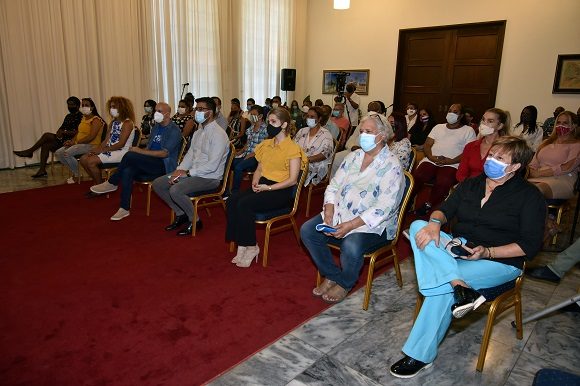
Díaz-Canel in meeting with representatives of the LGBTIQ + community in Cuba. Photo: Estudios Revolución.
There was no lack of analysis from the legal perspective, ideas that made clear the need to prepare all the entities of the country so that, from an increasingly enriched and profound normative and legislative framework, all the rights inherent to human existence and their conceptions of realization are respected and protected.
Mercy García, belonging to the Humanity for Diversity Network (HxD), also thanked “the unique opportunity to be heard by the highest authorities of the country, which will become an unforgettable teaching and experience (…) on the value of fighting for what is believed to be fair, and on the vocation humanist of our social project. ”
He alluded to families, schools, work, and social centers, where the great battle must take place, now with tools of great value such as the Magna Carta that defends what is s rights to equality and dignity, leading the nation “towards more social justice”; now with a preliminary draft of the Family Code , without doubts about the future, love and affection.
Francisco Rodríguez Cruz, also from HxD, alluded to how much it means for LGBTIQ + people to have reached the exchange this Friday: “Yes it is historical. For us that means a lot (…) it is the result of the work of many people, of many institutions, of Cenesex that has led this effort for many years. ” And he recalled then the , which have been vital spaces in the education of Cuban citizenship, and therefore deserve to be recovered.
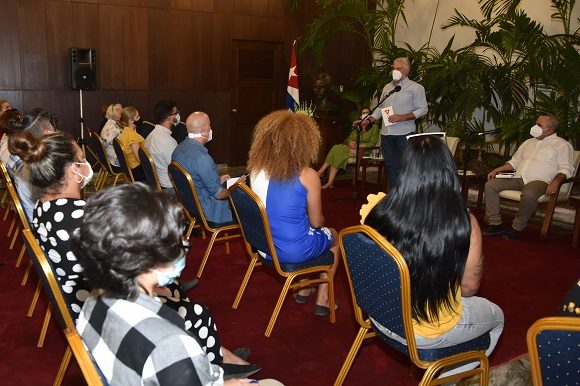
Exchange of the Cuban president with representatives of the LGBTIQ + community in Cuba. Photo: Estudios Revolución.
Teresa spoke of education, culture and art as cardinal premises Jesús —of the Lesbian and Bisexual Women’s Network—, because “if we do not teach that the other person should not be looked down on because of their sexual orientation, because of their gender expression, we will never finish building that (uplifting) way of being in life. ”
Delia Suárez, a researcher at Cenesex, referred to the value of educating from the emotions. And he emphasized on refusing to mock, or allow differences to become social inequalities. He also asked that life stories serve not only as historical memory but also also to transform realities.
The deputy director of Cenesex and coordinator of community social networks, Manuel Vásquez Sejido, referred to how very stagnant prejudices persist, before which it is inadmissible that the institutions do not react more quickly and effectively. He spoke of advancing in the legal system and in a robust educational process, while communication is part of that advance.
“In Cuba,” said the lawyer, “we have the conditions to continue advancing on these issues.” He did not forget that there is political will to assume, and that there is a people very committed to social justice.
From the Youth Network, the secondary school teacher, Lianet Arias Rodríguez, highlighted the importance of our teachers preparing, passing courses of rigor to assume situations that are very complex and that must be treated with information and depth from the classrooms. He affirmed it because breaking prejudices takes a fight, in the first place, against all ignorance.
Willingness to face a great challenge
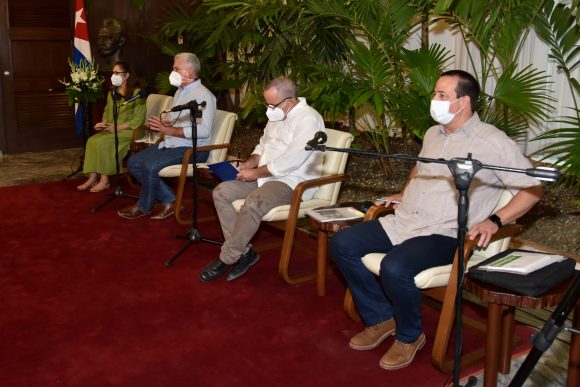
Authorities of the country exchange with representatives of the LGBTIQ + community in Cuba. Photo: Estudios Revolución.
“I think the main thing we are addressing is that we are defending a group of convictions, a group of principles ”, expressed President Díaz-Canel to his interlocutors, to whom he reminded that it is about dismantling a patriarchal paradigm of domination that has been imposed during years , in a social historical process that we have lived through and that therefore has caused misunderstandings, prejudices.
“Not all people have reached, as in other issues, the same levels of maturity, knowledge, sensitivity, to overcome certain misunderstandings, certain situations. ”
The president spoke, in this sense, of great challenges ahead, of organizing work and ways of thinking: “I believe that there are conditions that help us, (…) there are processes that the country is developing, that open doors, shed light.” And he exemplified: “We are in a battle to achieve in the shortest possible time, with a legislative exercise, with an element of normative construction, having all the laws and all the legal norms support the Constitution. ”
What I can ratify, said the Chief State, “is that there is all the political will to advance on these issues, and that we cannot be idealistic, we are not going to solve everything at once but, as I say, every day we can tear a bit out of the problem. ”
We will have to keep seeing each other at another time, said the president, and thanked everyone for the ideas shared.
Note: This article has been indexed to our site. We do not claim legitimacy, ownership or copyright of any of the content above. To see the article at original source Click Here
